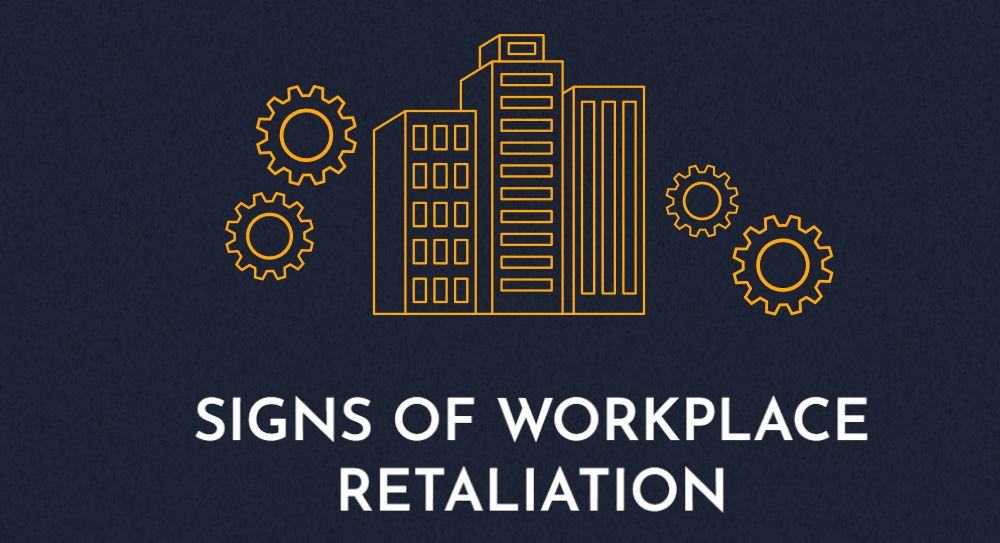
Annie was happy at her job as an administrative assistant – she constantly received outstanding performance reviews and was well-liked and respected by her co-workers. That is until a new supervisor said “old folks like Annie” couldn’t possibly learn a new software program. The supervisor turned down her request to be trained, and a younger, less-experienced employee received a choice assignment that required using the program.
When Annie expressed concerns about age discrimination to her Human Resources Business Partner, she was assured the matter would be looked into. The supervisor told HR it was “all a big misunderstanding.” Soon after the inquiry, several projects Annie managed for many years were given to other people. She was increasingly excluded from key meetings. Six months later, Annie left the job she once enjoyed.
If you believe you are experiencing signs of workplace retaliation, contact the employment law attorneys at Brenton Legal today.
What Workplace Retaliation is and Some Examples
While some people might dismiss Annie’s experience as a bad break, it has a legal name – workplace retaliation. The term describes actions an employer takes to “get back” at an employee for exercising what the U.S. Equal Employment Opportunity Commission (EEOC) and state laws call protected activity.
Examples of legal workplace rights, known as protected activities, include:
- Reporting workplace misconduct, or “whistleblowing”
- Refusing sexual advances
- Taking family leave
- Asking for accommodation for a disability or a religious practice
- Cooperating in an internal or external workplace investigation
- Reporting harassment or discrimination directed toward you or another employee
- Raising concerns about workplace safety
- Requesting overtime pay
Unfortunately, workplace retaliation is widespread and common. It can occur at large and small businesses in any industry and at any level (entry level through senior executive) of the organization. In FY 2020, workplace retaliation was reported in 37,632 of the 67,448 cases of workplace discrimination received by the EEOC – more than half.
Workplace retaliation can take many forms and you shouldn’t have to deal with any of them. If you are a victim of any type of retaliation in the workpalce, contact Brenton Legal today.
Not all workplace retaliatory actions are alike. They can take several forms, such as:
- Termination or demotion
- Exclusion from meetings and other company activities
- Verbal abuse
- Poor performance reviews
- Salary reduction
How Can Workplace Retaliation Be Prevented?
It’s worth noting that businesses can – and many do – act to prevent workplace retaliation. After all, just as companies have reputations for quality and service with customers, they can become known among recruiters, job seekers, and their competitors for fostering a toxic workplace environment. Companies that take proactive measures, such as the following, can reduce the chances of workplace retaliation:
- Establish a company culture based on respect, inclusiveness, and diversity
- Develop and enforce clear company policies that set standards for employee behavior and explicitly explain consequences for violations
- Conduct yearly employee training on workplace harassment and retaliation
- Provide employees with a system they can use to report concerns without fear of retaliation
- When/if accusations of workplace retaliation are made, conduct a thorough and impartial internal investigation
Consequences of Workplace Retaliation
Workplace retaliation can have serious effects on employees and the business itself.
Employees facing retaliation can experience physical and emotional stress. If they are fired or become so fed up that they leave of their own accord, they could suffer financial difficulties or struggle to find another job. For the workers who remain, morale and productivity can take a significant nosedive, leading to resignations over the way the company handled the situation or fear that they might be next.
One recourse for affected employees is to seek legal assistance. An experienced employment law attorney can advise as to whether to file federally (if the alleged violation falls under EEOC statutes) or at the state level. If the business is found liable after all legal avenues are pursued, the company could be responsible for paying for the employee’s pain and suffering, attorney’s fees and lost wages, as well as punitive damages.
What can an Employment Lawyer Do?
Workplace retaliation cases are best handled by attorneys who know the ins and outs of employment law. It’s not the time to use the lawyer who handled the employee’s real estate transaction or drew up his or her will. An employment lawyer can explain whether there’s a case to pursue and what type of evidence will be helpful in the case, hire experts, interview witnesses, and represent the employee at every stage of what can be a lengthy and complex process. They will negotiate for the best possible settlement terms, and if an agreement cannot be reached, aggressively represent the employee in court.
Businesses will do all they can to defend against the claim. Let’s think again about Annie. The company’s defense might be that they have the right to make work assignments – that Annie’s complaint against her supervisor had nothing to do with receiving less challenging work, which in turn did not require her presence in as many meetings. Or, the company could claim Annie’s assignments reflected her overall poor work performance or that she behaved in an insubordinate manner.
Building a Case of Workplace Retaliation
Annie, and others who’ve experienced workplace retaliation, need an employment lawyer who can build a solid case that will hold up against the company’s defense. There are three parts to a successful workplace retaliation case:
- Proof that the employee was engaged in a protected activity, many of which are listed above. In Annie’s case, she claimed she was denied training because of her supervisor’s age bias.
- Evidence that someone familiar with the protected activity retaliated. Annie’s supervisor gave others her key assignments after HR looked into her complaint of age discrimination.
- Showing the protected activity was the reason for retaliation. If Annie had not reported the age discrimination, a court might have viewed her merely as an employee who did not get along with her new boss.
Experienced Employment Attorneys on Your Side
Workplace retaliation cases are not easy to resolve. The lawyers at Brenton Legal are extremely knowledgeable about EEOC statutes and Florida’s employment laws. They also are passionate about using their understanding of employment law to help people who have been treated unfairly in the workplace. They work on a contingency basis and do not seek payment unless there’s a decision in your favor. If you believe you’ve experienced workplace retaliation, take the next step and schedule a free consultation by completing our user-friendly form or calling us at 954-639-4644.

